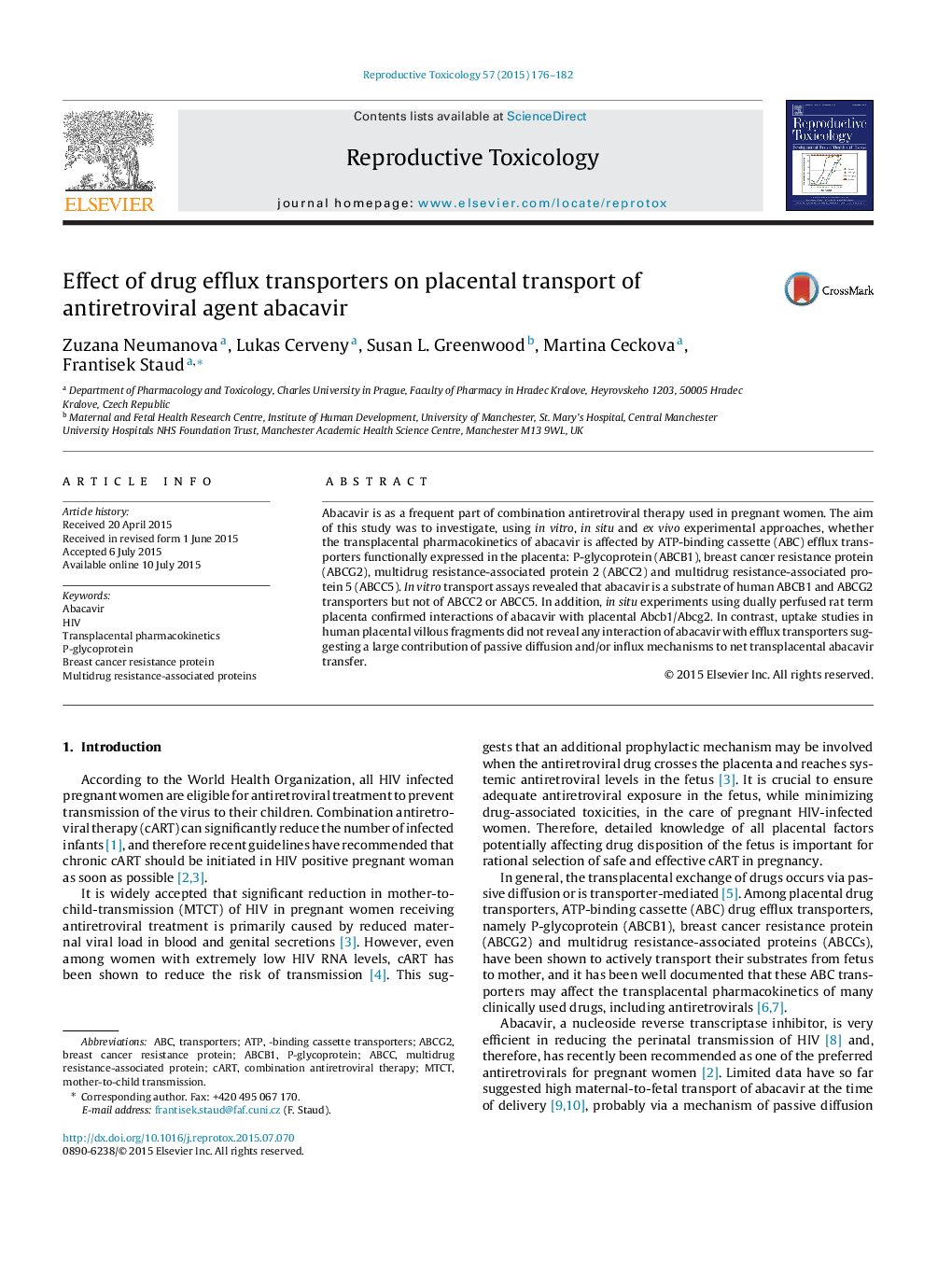| Article ID | Journal | Published Year | Pages | File Type |
|---|---|---|---|---|
| 2593398 | Reproductive Toxicology | 2015 | 7 Pages |
•Abacavir is a substrate of human ABCB1 and ABCG2.•Abacavir is not a substrate of human ABCC2 and ABCC5.•ABCB1/ABCG2 have amodest effect on abacavir transplacental kinetics at term.
Abacavir is as a frequent part of combination antiretroviral therapy used in pregnant women. The aim of this study was to investigate, using in vitro, in situ and ex vivo experimental approaches, whether the transplacental pharmacokinetics of abacavir is affected by ATP-binding cassette (ABC) efflux transporters functionally expressed in the placenta: P-glycoprotein (ABCB1), breast cancer resistance protein (ABCG2), multidrug resistance-associated protein 2 (ABCC2) and multidrug resistance-associated protein 5 (ABCC5). In vitro transport assays revealed that abacavir is a substrate of human ABCB1 and ABCG2 transporters but not of ABCC2 or ABCC5. In addition, in situ experiments using dually perfused rat term placenta confirmed interactions of abacavir with placental Abcb1/Abcg2. In contrast, uptake studies in human placental villous fragments did not reveal any interaction of abacavir with efflux transporters suggesting a large contribution of passive diffusion and/or influx mechanisms to net transplacental abacavir transfer.
